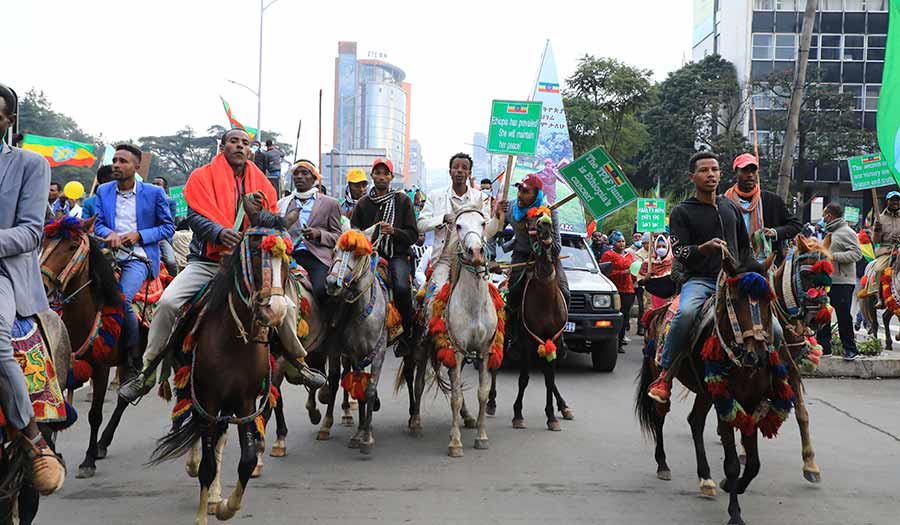 AP
AP
World News Desk
Learn the why behind the headlines.
Subscribe to the Real Truth for FREE news and analysis.
Subscribe NowNAIROBI, Kenya (AP) – Ethiopia’s government on Tuesday summoned all capable citizens to war, urging them to join the country’s military to stop resurgent forces from the embattled Tigray region “once and for all.”
The call to arms is an ominous sign that all of Ethiopia’s 110 million people are being drawn into a conflict that Prime Minister Abiy Ahmed, a Nobel Peace Prize winner, once declared would be over within weeks. The deadly fighting has now spread beyond Tigray into neighboring regions, and fracturing in Africa’s second most populous country could destabilize the entire Horn of Africa region.
Tuesday’s announcement effectively ends the unilateral cease-fire the government declared in June as its military retreated from Tigray. It is also almost certain to magnify the toll of a nine-month war that has led to the massacre of thousands, widespread gang rapes and the displacement of entire communities, mostly Tigrayan. Hundreds of thousands of people in Tigray now face famine conditions in the world’s worst hunger crisis in a decade.
The prime minister’s summons chilled Tigrayans, even those outside Tigray, with the statement calling on all Ethiopians to be “the eyes and ears of the country in order to track down and expose spies and agents” of the Tigray forces. Witnesses and lawyers have said thousands of Tigrayans already have been detained during the conflict for their identity alone.
“The kind of war he’s calling for is on another level, it’s for a total annihilation of Tigray,” said Teklehaymanot G. Weldemichel, whose family remains trapped in the Tigray region. “‘Once and for all’ means to finish everyone out.”
The call to join the military is so far not compulsory, but with access to parts of Ethiopia increasingly blocked, it is difficult to know what kind of pressure is being applied.
Ethiopia’s sharply worded statement came after weeks of mobilization by the federal government, including military recruiting and blood donation drives, as Tigray forces pushed into the neighboring Amhara and Afar regions.
The war began as a political dispute. Tigray leaders dominated Ethiopia’s repressive government for nearly three decades, embittering many across the country by helping to put in place a system of ethnic federalism that led to ethnic tensions. When Mr. Abiy came to office in 2018, the Tigray leaders were sidelined.
Fighting began in November and took a stunning turn in June when the Tigray forces, strengthened by new recruits among Tigrayans horrified by the war’s atrocities, retook much of the region.
The Tigray forces now say they want to secure their long-blockaded region of 6 million people, end the fighting and see the prime minister leave office. Despite the resentment of many in Ethiopia, they are hoping for public support as they vow to press to the capital, Addis Ababa, if needed.
“If his government topples, that’s icing on the cake,” spokesman for the Tigray forces told the AP last week.
More on Related Topics:
- In a Nigerian Village, Extremists Issued a Call to Prayer and Then Slaughtered Those Who Turned Up
- Sudanese Paramilitary Force Abducting Children in Darfur, Witnesses Say
- Nigeria’s Northeast Faces Worst Hunger in a Decade as Aid Cuts Hit Region, UN Says
- Uganda Shuts Down Internet Ahead of Election, Orders Rights Groups to Halt Work
- Sudan’s Top General Rejects U.S.-Led Ceasefire Proposal, Calling It ‘The Worst Yet’


